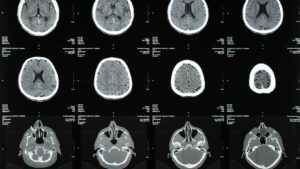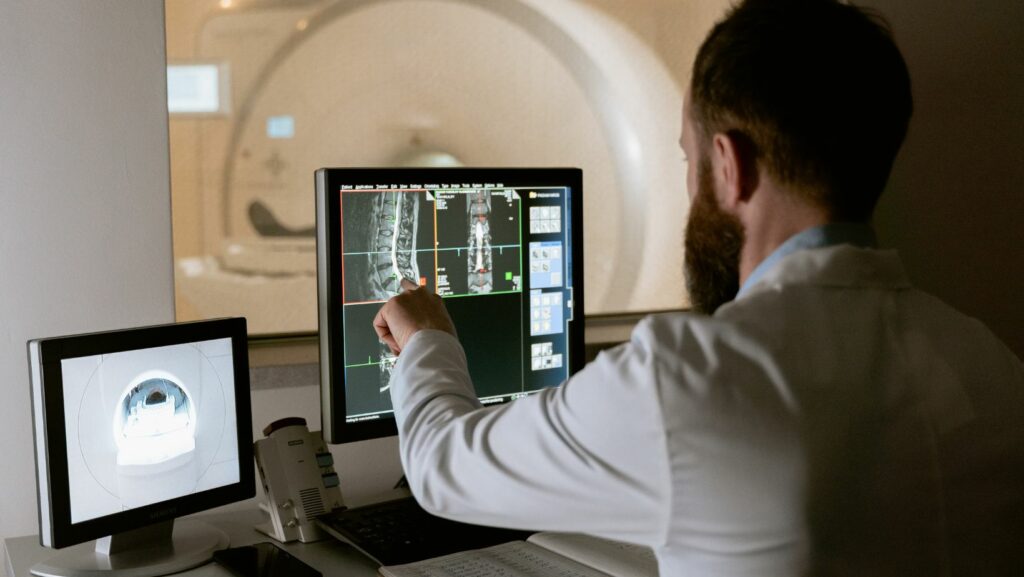How to be a Radiology Tech
 Embarking on a career as a radiology technician can open doors to a dynamic and rewarding field in healthcare. Radiology techs play a crucial role in diagnosing and treating medical conditions through imaging technologies. From X-rays to MRIs, these professionals are essential in providing accurate and detailed images that help doctors make informed decisions about patient care.
Embarking on a career as a radiology technician can open doors to a dynamic and rewarding field in healthcare. Radiology techs play a crucial role in diagnosing and treating medical conditions through imaging technologies. From X-rays to MRIs, these professionals are essential in providing accurate and detailed images that help doctors make informed decisions about patient care.
For those considering a career in radiology technology, understanding the educational requirements, job responsibilities, and growth opportunities in the field is key. With advancements in medical technology, the demand for skilled radiology techs is on the rise, making it a promising career path for those passionate about healthcare and technology. Whether working in hospitals, clinics, or diagnostic imaging centers, radiology techs make a difference in patients’ lives every day.
Exploring the Radiology Tech Profession
Radiology technicians are essential healthcare professionals responsible for operating imaging equipment that helps in diagnosing medical conditions. They play a crucial role in the healthcare industry by producing high-quality images through X-rays, MRIs, and other imaging  technologies.
technologies.
Educational Requirements:
To become a radiology technician, individuals typically need an associate’s degree in radiologic technology. Some specialized roles may require a bachelor’s degree. Additionally, obtaining certification from organizations like the American Registry of Radiologic Technologists (ARRT) is often necessary to practice professionally.
Job Responsibilities:
Radiology techs perform a wide range of duties, including preparing patients for imaging procedures, positioning them correctly, and operating the imaging equipment to capture diagnostic images. They must ensure patients’ safety during procedures and collaborate with radiologists to interpret images accurately.
Growth Opportunities:
The field of radiology technology offers promising growth opportunities for individuals with the required skills and qualifications. With advances in medical imaging technology, the demand for skilled radiology technicians is expected to rise, creating a favorable job market for those entering the profession. Additionally, experienced radiology techs may advance to supervisory roles or specialize in areas such as mammography or CT scanning.
Work Settings:
Radiology technicians work in diverse healthcare settings, such as hospitals, diagnostic imaging centers, and outpatient clinics. They interact closely with patients, physicians, and other healthcare professionals, contributing to the diagnosis and treatment of various medical conditions. The dynamic work environment allows radiology techs to make a meaningful impact on patients’ lives.
Exploring the radiology tech profession reveals a rewarding career path with opportunities for growth and professional development. As key members of the healthcare team, radiology technicians play a vital role in delivering quality patient care through their expertise in medical imaging technology.
Required Education and Training
Radiology technicians must complete an accredited radiology program to enter the field. These programs typically result in an associate’s degree in radiologic technology. Such programs offer comprehensive training in imaging techniques and patient care.
Accredited radiology programs are essential for aspiring radiology technicians. These programs provide the necessary knowledge and skills to operate imaging equipment and conduct diagnostic procedures accurately. Students can expect to learn about radiographic positioning, radiation safety, and medical ethics during their coursework.
Essential Skills for Radiology Techs
Radiology technicians require a unique set of skills to excel in their profession. These skills are crucial for accurately performing imaging  procedures and ensuring quality patient care in medical settings.
procedures and ensuring quality patient care in medical settings.
- Technical Proficiency: Radiology techs must be proficient in operating complex imaging equipment such as X-ray machines, CT scanners, and MRI machines.
- Attention to Detail: They need to pay close attention to detail to capture high-quality images that aid in accurate diagnoses.
- Communication Skills: Effective communication with patients to explain procedures and ensure their comfort during imaging is essential.
- Critical Thinking: Radiology techs must think critically to adjust imaging parameters and troubleshoot issues during procedures.
- Teamwork: Collaboration with radiologists, nurses, and other healthcare professionals is vital for successful patient care.
- Adaptability: Being able to adapt to different situations and patient needs is crucial in a dynamic medical environment.
- Empathy: Showing empathy towards patients to alleviate their fears and concerns during imaging procedures is important.
- Ethical Conduct: Upholding ethical standards, patient confidentiality, and following protocols is imperative for radiology techs.
- Problem-Solving Skills: The ability to quickly solve technical problems during imaging procedures is a valuable skill.
- Stress Management: Radiology techs need to manage stress effectively, especially in high-pressure situations or emergencies.

